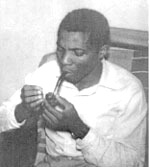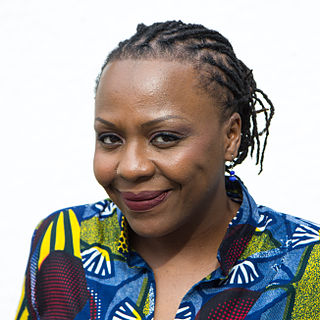 W
WChinua Achebe was a Nigerian novelist, poet, professor, and critic. His first novel Things Fall Apart (1958), often considered his masterpiece, is the most widely read book in modern African literature.
 W
WCatherine Obianuju Acholonu was a Nigerian author, researcher and political activist.
 W
WTolu Akinyemi, also referred to as Poetolu is a Nigerian writer and poet. His work is notable for its simple and humorous take on everyday human experiences.
 W
WJohn Pepper Clark-Bekederemo was a Nigerian poet and playwright, who also published as J. P. Clark and John Pepper Clark.
 W
WChristopher Ifekandu Okigbo was a Nigerian poet, teacher, and librarian, who died fighting for the independence of Biafra. He is today widely acknowledged as an outstanding postcolonial English-language African poet and one of the major modernist writers of the 20th century.
 W
WDennis Chukude Osadebay was a Nigerian politician, poet, journalist and former premier of the now defunct Mid-Western Region of Nigeria, which now comprises Edo and Delta State. He was one of the pioneering Nigerian poets who wrote in English.
 W
WMabel Segun is a Nigerian poet, playwright and writer of short stories and children's books. She has also been a teacher, broadcaster, and a sports woman.
 W
WLola Shoneyin is a Nigerian poet and author who launched her debut novel, The Secret Lives of Baba Segi's Wives, in the UK in May 2010. Shoneyin has forged a reputation as an adventurous, humorous and outspoken poet, having published three volumes of poetry. In April 2014 she was named on the Hay Festival's Africa39 list of 39 Sub-Saharan African writers aged under 40 with potential and talent to define trends in African literature. Lola won the PEN Award in America as well as the Ken Saro-Wiwa Award for prose in Nigeria. She was also on the list for the Orange Prize in the UK for her debut novel, The Secret of Baba Segi's Wives, in 2010. She lives in Lagos, Nigeria, where she runs the annual Aké Arts and Book Festival. In 2017, she was named African Literary Person of the Year by Brittle Paper.
 W
WAkinwande Oluwole Babatunde Soyinka, known as Wole Soyinka, is a Nigerian playwright, poet and essayist in the English language. He was awarded the 1986 Nobel Prize in Literature, the first sub-Saharan African to be honoured in that category. Soyinka was born into a Yoruba family in Abeokuta. In 1954, he attended Government College in Ibadan, and subsequently University College Ibadan and the University of Leeds in England. After studying in Nigeria and the UK, he worked with the Royal Court Theatre in London. He went on to write plays that were produced in both countries, in theatres and on radio. He took an active role in Nigeria's political history and its struggle for independence from Great Britain. In 1965, he seized the Western Nigeria Broadcasting Service studio and broadcast a demand for the cancellation of the Western Nigeria Regional Elections. In 1967, during the Nigerian Civil War, he was arrested by the federal government of General Yakubu Gowon and put in solitary confinement for two years.